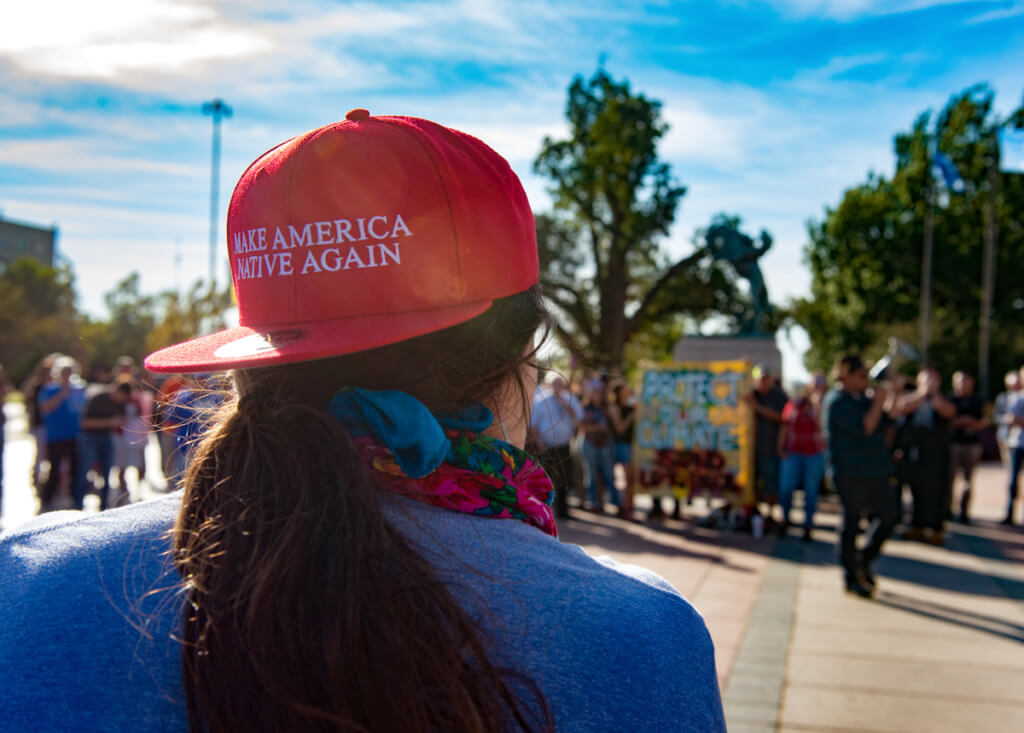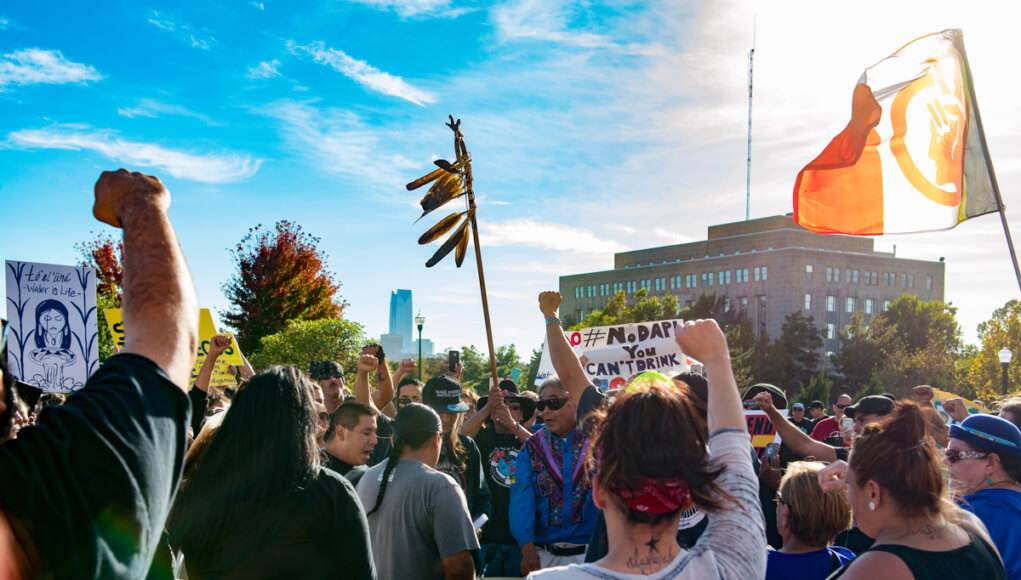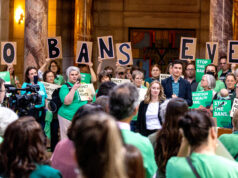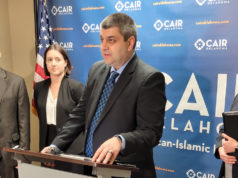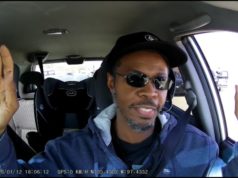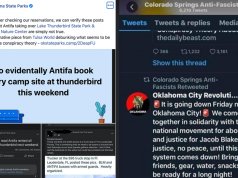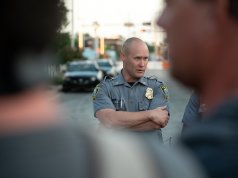
Local leaders of minority advocacy groups joined Native Americans demonstrators and others Monday afternoon at the State Capitol in Oklahoma City. The rally was held in solidarity with Standing Rock Sioux and other tribal members who have camped out near Cannon Ball, North Dakota, to block construction of the Dakota Access Pipeline.
The event included statements from award-winning Native American filmmaker Sterlin Harjo; Adam Soltani, the executive director of Oklahoma’s chapter of the Council on American-Islamic Relations (CAIR); T. Sherri Dickerson of Black Lives Matter Oklahoma; as well as a bevy of Native Americans singing, drumming and voicing support for their brethren in North Dakota.
While those protests have been ongoing for months, it was recent violence that spurred Monday’s demonstration in OKC.
Clashes between law enforcement and protesters at Standing Rock — who prefer to be called water protectors — have turned violent in some cases.
Further, the recent acquittal of the Bundy brothers in Oregon, who led the seizure of the Malheur National Wildlife Refuge in January, has created a contrast between the law enforcement’s treatment of armed men in Oregon and the Sioux “protectors of water,” as Muscogee (Creek) member and chicana Apollonia Piña put it.
“The people up at Standing Rock aren’t leading an armed resistance,” Piña said Monday evening after helping organize the rally. “It has, from day one, been paramount that we are seen as non-violent protectors of water and that we lead our resistance through prayer and ceremony and acting as a community together.”
A chance to highlight prejudices
Hundreds of people gathered in a circle on the south side of the Capitol building carrying signs bearing the widespread #NoDAPL social tag alongside others with the Lakota phrase “Mni wiconi,” which means “Water is life.” Local leaders at the event highlighted how the Standing Rock movement illustrates the commonality of the minority experience in America.
“[Muslims] know what it’s like to be discriminated against. We know what it’s like to have legislation passed against us. We know what it’s like to be called names that are completely unfounded and untrue,” said Soltani, referencing a recent incident in which Rep. John Bennett (R-Sallisaw) called him and Imam Imad Enchassi terrorists. “Therefore, the very least we can do is stand with people who need our support and our help.”
Likewise, Dickerson related the marginalization of tribal peoples and the abuse of their lands to the experience of African-Americans.
“Our fight for racial equity and justice has been the same for centuries,” Dickerson told the crowd via bullhorn. “We think it is a shame that our native peoples have to fight for something that is inherently and sovereignly theirs.
“This revolution should be televised,” she said to a chorus of approval.
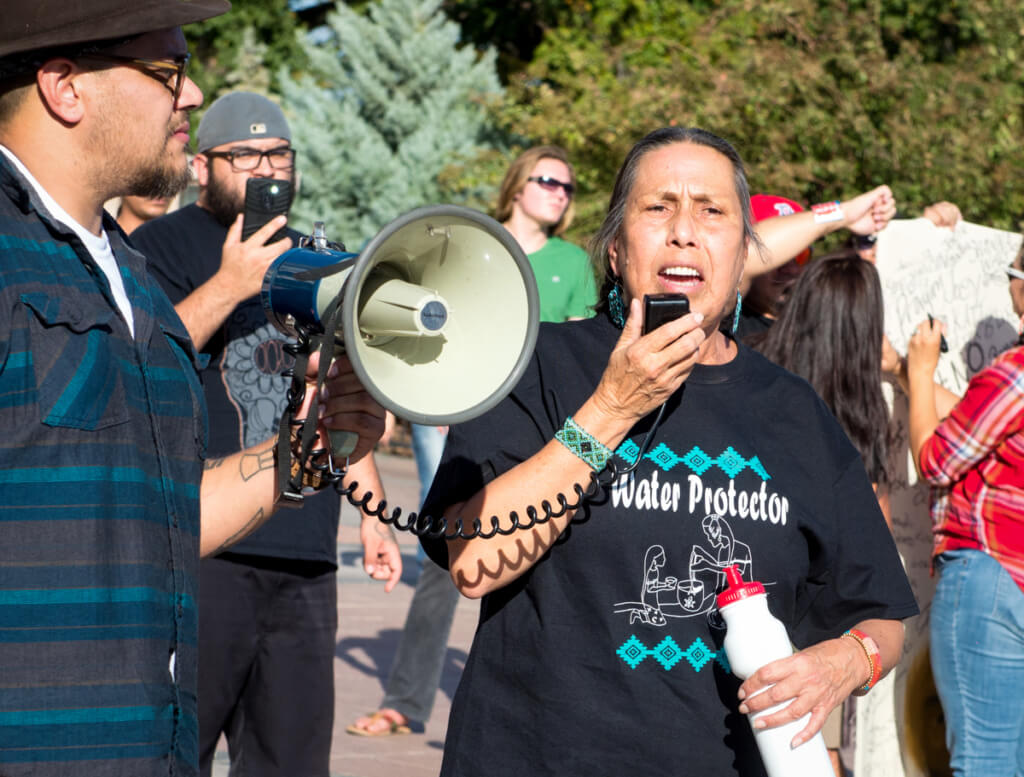
More than just a minority issue
Filmmaker Harjo, an outspoken supporter of Standing Rock who had previously suggested organizing a walk from Oklahoma, called the pipeline protests an issue that affects “everybody.”
“It’s about making these corporations take ownership over what they are doing to citizens and doing to people,” he said. “If they’re polluting the water, we need to know that, and we need to stand up to that.”
Indeed, there were plenty of non-native, non-minority protesters in attendance as well. Norman resident Tom Kuhns said although he doesn’t have any native blood, he believes the Dakota Access Pipeline, which would be constructed to run beneath the Missouri and Mississippi rivers, poses an environmental risk.
“I disagree with the pipeline, and I think it should be stopped, and I think the Standing Rock Sioux tribe has a right to protest and a right to have clean water,” Kuhns said.
In Alabama on Monday, a gas pipeline exploded, injuring more than a half-dozen people about five miles west of a recent gasoline pipeline leak, according to Fox Channel 8 in the region.
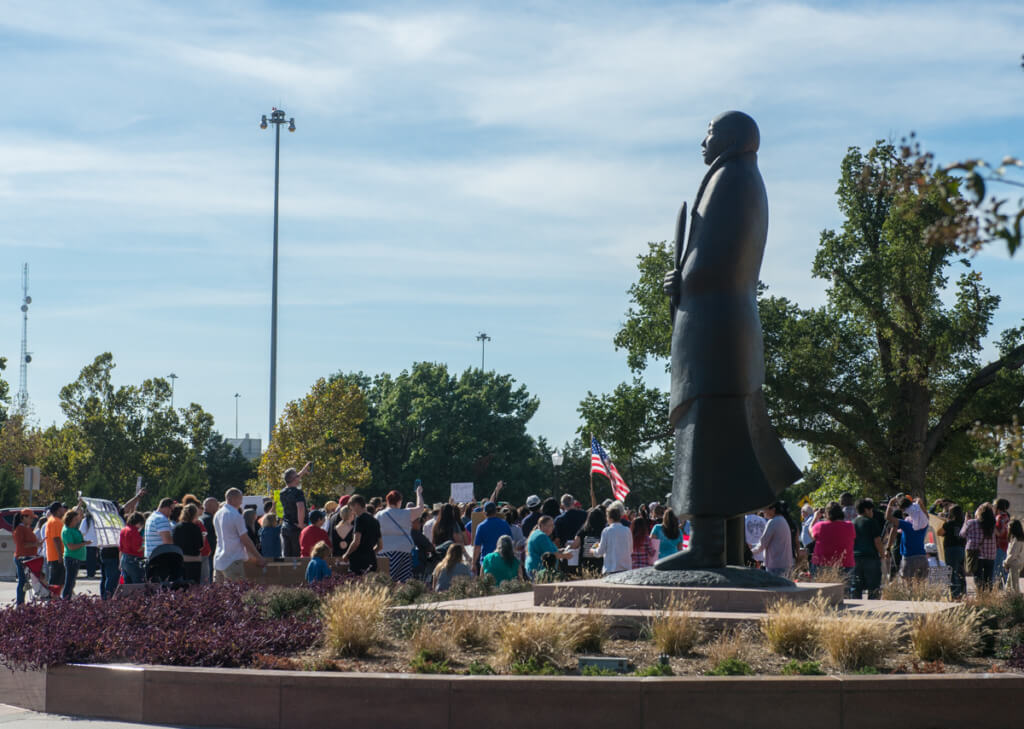
‘I don’t hate the white man’
Laura Woods, who also lacks a Native American heritage, expressed frustration at the situation unfolding in western North Dakota. Via email later on Monday afternoon, the Edmond resident verbalized more clearly some thoughts she had struggled to express in the moment.
“I am tired of our history of treating people who are different badly,” Woods wrote. “Our history is littered with white people claiming ownership over things they have no business trying to own — not just the Native Americans but also the African Americans and women.
“I do not hate ‘the white man,’ but I am tired of his bullshit.”
